Grindcore is an extreme fusion genre of heavy metal and hardcore punk that originated in the mid-1980s, drawing inspiration from abrasive-sounding musical styles, such as thrashcore, crust punk, hardcore punk, extreme metal, and industrial. Grindcore is considered a more noise-filled style of hardcore punk while using hardcore's trademark characteristics such as heavily distorted, down-tuned guitars, grinding overdriven bass, high-speed tempo, blast beats, and vocals which consist of growls, shouts and high-pitched shrieks. Early groups like Napalm Death are credited with laying the groundwork for the style. It is most prevalent today in North America and Europe, with popular contributors such as Brutal Truth and Nasum. Lyrical themes range from a primary focus on social and political concerns, to gory subject matter and black humor.
Nasum was a Swedish grindcore band from Örebro, formed in 1992. The band released four studio albums and developed into "one of that country's premier metal acts". They disbanded after the December 2004 tsunami killed the band's frontman, Mieszko Talarczyk.

Cephalic Carnage is an American death metal band formed in Denver, Colorado in 1992. The band comprises vocalist Lenzig Leal, guitarists Steve Goldberg and Brian Hopp, drummer John Merryman and bassist Nick Schendzielos. Cephalic Carnage has released six studio albums and toured in North America, Europe and Japan.

Calculating Infinity is the debut studio album by American metalcore band The Dillinger Escape Plan. Recorded at Trax East Recording Studio in South River, New Jersey, it was produced by engineer Steve Evetts with the band's guitarist Ben Weinman and drummer Chris Pennie, and released on September 28, 1999 by Relapse Records. The album is the band's only full-length album to feature original vocalist Dimitri Minakakis, who left the band in 2001.

Pig Destroyer is an American grindcore band formed in 1997 in Alexandria, Virginia. The band was formed by vocalist J.R. Hayes, guitarist Scott Hull, and drummer John Evans. Throughout the band's earlier history, they were a three-piece group until sampler Blake Harrison joined in 2006, notably had no bassist until the inclusion of John Jarvis in 2013, and went through 2 past drummers with the role currently held by Adam Jarvis. Pig Destroyer is one of the most well-known grindcore bands in the genre due to Hayes's poetic lyrics, Hull's incorporation of thrash, punk, and doom influences in songwriting, and technical drum work.
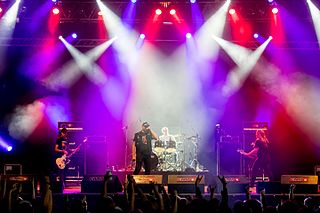
Rotten Sound is a Finnish grindcore band from Vaasa, formed in 1993. The band comprises vocalist Keijo Niinimaa, guitarist Mika Aalto, bassist Kristian Toivainen, and drummer Sami Latva. The band has released eight studio albums and "earned a reputation for being one of the most intense bands on the Scandinavian death metal/grindcore scene".
Mieszko Talarczyk was the lead singer and guitarist of the Swedish grindcore band Nasum, Genocide Superstars, and Krigshot. Known for his engineering and production abilities, he co-founded Soundlab studios with Millencolin guitarist Mathias Färm.

Symphonies of Sickness is the second album by British extreme metal band Carcass. It was released through Earache Records on 4 December 1989.
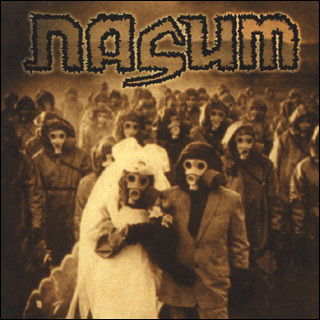
Inhale/Exhale is the first album by the Swedish grindcore band Nasum. It was released on 26 May 1998 by Relapse Records.
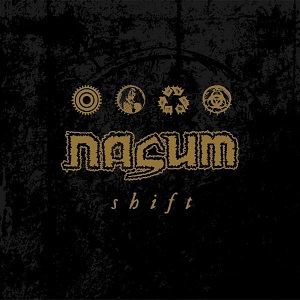
Shift is the fourth and final studio album by the Swedish grindcore band Nasum. It was released on October 26, 2004, by Burning Heart Records in Sweden and on Relapse Records in North America. Two months after this album was released, Mieszko Talarczyk died during the 2004 tsunami, resulting in the disbanding of Nasum.
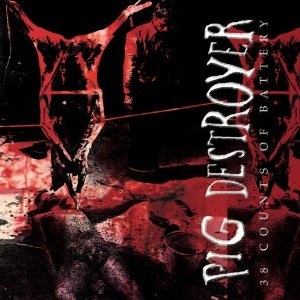
38 Counts of Battery is a compilation album by the grindcore band Pig Destroyer, which was released on November 28, 2000 through Relapse Records as part of their Underground series of albums and reissues. The recording collects nearly every release the band issued up to this point in time, including their debut Explosions in Ward 6 album, their splits with Orchid and Isis, and their 1997 demo tape.

Origo is the fourth full-length album by the Swedish progressive metal band Burst, released on October 17, 2005, by Relapse Records. It received critical acclaim from magazines such as Kerrang! and Rock Sound.
Deathbound was a death metal band from Vaasa, Finland. They formed in 1995 and split up in 2010. They were signed to Dynamic Arts Records and released four albums while active, the most recent being Non Compos Mentis (2010).
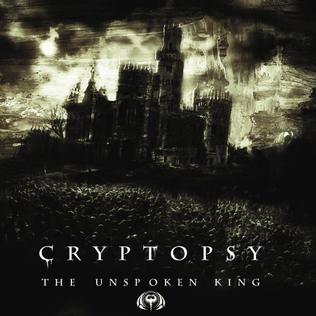
The Unspoken King is the sixth studio album by Canadian death metal band Cryptopsy. The album was released on May 26, 2008 in Europe, and June 24, 2008 in the US by Century Media Records. It was the last album to feature guitarist Alex Auburn and bassist Eric Langlois. Keyboardist Maggie Durand was also removed from the band shortly after completion.
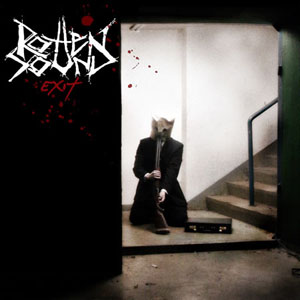
Exit is the fourth studio album by Finnish grindcore band Rotten Sound, released on 5 January 2005.

The Inalienable Dreamless is the third and final studio album by grindcore band Discordance Axis, released on Hydra Head Records on August 13, 2000. It has since become one of the most acclaimed grindcore albums of all time. The album, along with its production history, was made the subject of the 2012 book Compiling Autumn: The Making of Discordance Axis' "The Inalienable Dreamless", a limited edition paperback that was released to aid the Japanese Red Cross Society. The album was repressed on black and blue vinyl for Record Store Day in 2011.

Agorapocalypse is the fourth full-length studio album by American grindcore band Agoraphobic Nosebleed (ANb). It was released through Relapse Records on April 14, 2009, in the United States, and April 20 internationally. The album was recorded by ANb's guitarist Scott Hull at his Visceral Sound studios; Hull also wrote the drum parts using Toontrack's Drumkit from Hell in his digital audio workstation. This is also the band's only album with vocalist Katherine Katz. Agorapocalypse's cover artwork was designed by German illustrator Florian Bertmer.

Revocation is an American technical death metal band from Boston, Massachusetts, consisting of guitarist and vocalist Dave Davidson, bassist Brett Bamberger and drummer Ash Pearson. The band has released eight studio albums, two EPs, and ten music videos since their formation.
Victims were a Swedish hardcore punk band, originally hailing from Nyköping, at the end of their career they were based in Stockholm. The final line-up consisted of lead vocalist and bass player Johan Eriksson, drummer Andy Henriksson, guitar player, vocalist Jon Lindqvist and guitar player Gareth Smith.
Enemy Soil was an American grindcore band from Sterling, Virginia, first formed in 1991. The band played a style of grindcore that was influenced heavily by hardcore punk, and featured many line-up changes throughout its run, with frontman Richard Johnson acting as its core. Because the group initially was unable to find a suitable drummer, earlier Enemy Soil recordings featured a drum machine. The group's music was also politically-motivated early in their career, however later recordings instead featured introspective topics for lyrics.














